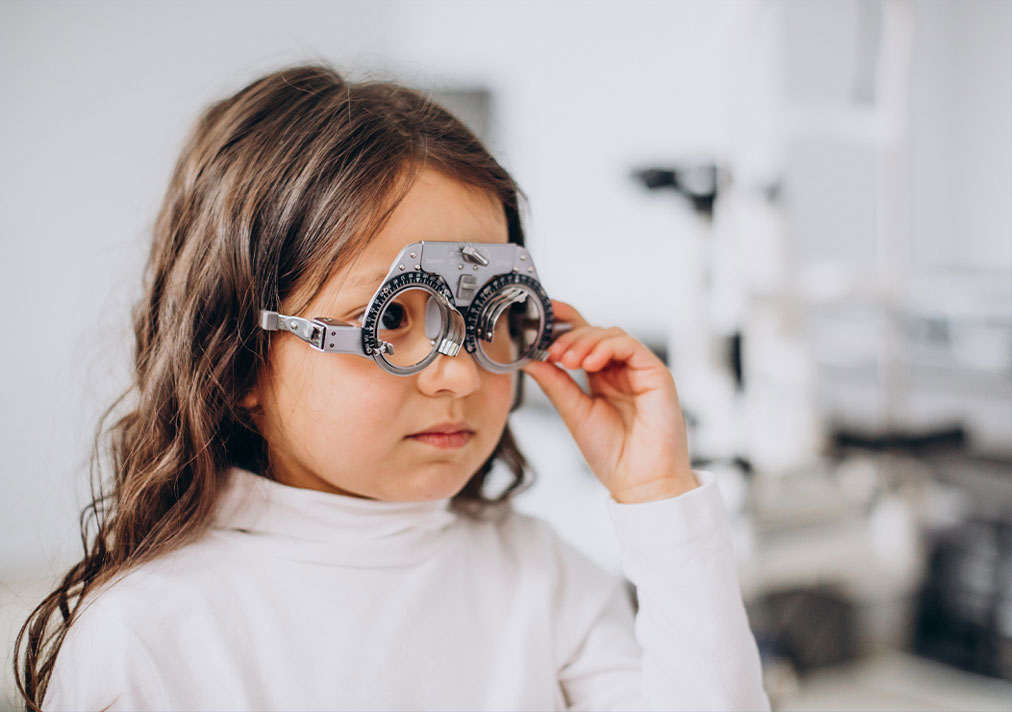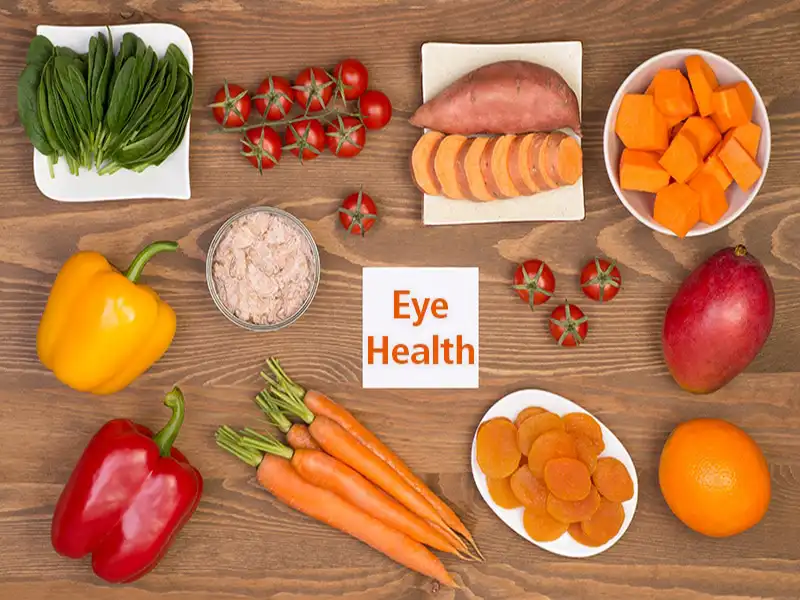How Nutrients Work Together for Eye Health
To preserve and enhance vision, guard against eye disorders, and promote general eye function, a complex interplay of vitamins, minerals, and antioxidants is at play.
-
Antioxidants and Vitamins: A Potent Pair
Vitamins A, C, and E are essential for maintaining healthy eyes. For the retina to remain healthy, vitamin A is crucial. Carrots and sweet potatoes are rich sources of beta-carotene, which is essential for healthy night vision.
Citrus fruits and leafy greens are rich sources of vitamin C, a powerful antioxidant that helps shield the eyes from damage from free radicals. It also lowers the chance of cataract development and promotes the health of the blood vessels in the eyes.
Nuts and seeds include vitamin E, which shields eye cells from oxidative stress, which can cause diseases like age-related macular degeneration (ARMD). Together, these vitamins work to preserve good eyesight and postpone the development of eye disorders.
-
Zinc and Selenium: Improving Absorption of Nutrients
Selenium and zinc are two other minerals that are very important for maintaining eye health. Because zinc facilitates the absorption of vitamin A, which keeps the retina functioning correctly, zinc is very significant. It is involved in the production of melanin, a pigment that protects the eyes, and is present in high quantities in the eye, especially in the retina.
Brazil nuts and shellfish are good sources of selenium, which enhances the antioxidant effects of vitamin E. This combination guards against oxidative damage to the ocular tissues, preventing cataracts and ARMD.
-
Omega-3 Fatty Acids: Maintaining Eye Health
The health of the retinal cells depends on omega-3 fatty acids, which are mostly found in fish like salmon and flaxseeds. By ensuring that the eyes generate adequate tears and preserve the integrity of the cell membranes, they help avoid dry eyes. These fatty acids also help to maintain the general health of the retina, which helps to avoid ARMD.
-
The Best Time to Eat for Eye Health
The efficiency of nutrients in promoting eye health can be greatly impacted by when you consume them. For optimal effects, here’s some advice on when to take specific nutrients:
-
Morning: Breakfast Rich in Vitamin A
A vitamin A-rich breakfast can help ensure that your eyes stay in good condition all day. Good options include foods like eggs, fortified cereals, and orange veggies like carrots or sweet potatoes. As the day goes on, vitamin A facilitates the retina’s capacity to adjust to variations in light, which helps your eyes adjust to the shift from dark to bright situations.
-
Midday: Lunch Packed with Antioxidants
If you want to shield your eyes from the oxidative stress that accumulates during the day, a lunch full of antioxidants is perfect. Incorporate a range of vibrant veggies into your meals, such as tomatoes, bell peppers, and spinach. Rich in C and E, these foods help shield ocular tissues from injury by acting as a counterbalance to free radicals.
-
Zinc with Omega-3 Dinner in the Evening
Focus on having a zinc- and omega-3-fatty acid-rich meal in the evening. Zinc aids in the absorption of Vitamin A and promotes the general health of your retina, whilst omega-3 fatty acids keep your eyes lubricated and healthy. A pre-bedtime dinner of grilled salmon, a side of leafy greens, and a portion of beans or lentils is a great approach to fuel your eyes.
-
Night: Hydration and rest.
Lastly, make sure you are well-hydrated before going to bed. Drinking water or herbal teas might help to avoid dehydration, a major cause of dry eyes. Sufficient hydration promotes the formation of tears, which keeps your eyes pleasant and moisturized at night.
Eating these nutrient-dense meals at the appropriate times of day will dramatically improve your eye health and keep your eyes healthy and bright for many years to come.




